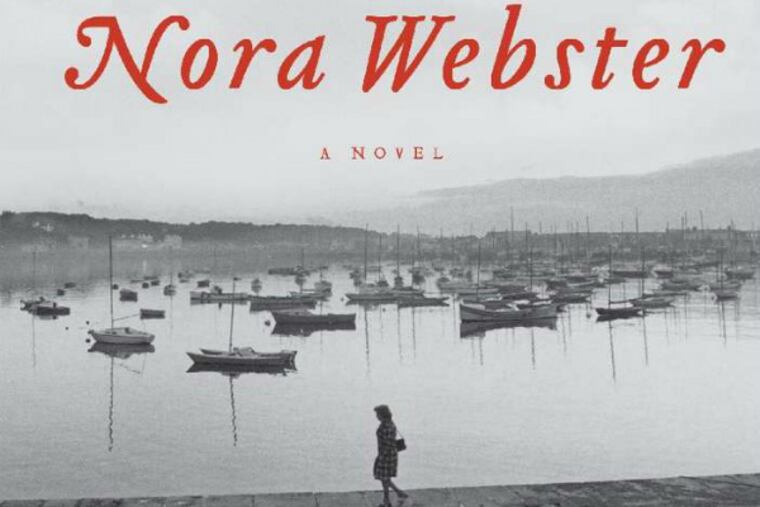Pointillist portrait of a young Irish widow
When we first meet Nora Webster, she's answering her door; it's a straggler, one of the last of the callers who have come to express their condolences about her husband. The visitors are pesty and Nora is weary of them.

Nora Webster
By Colm Tóibín
Scribner. 384 pp. $27
nolead ends nolead begins
Reviewed by Katie Haegele
When we first meet Nora Webster, she's answering her door; it's a straggler, one of the last of the callers who have come to express their condolences about her husband. The visitors are pesty and Nora is weary of them.
Maurice died at 40 after a long illness, leaving Nora and their two younger children who are still at home. The family lives in a town in Ireland that's small enough for Nora to know something about nearly everyone she passes on the street, and for them to know about her. Colm Tóibín allows us to view it either as a place that's stiflingly oppressive, or one that feels cozily like an extended family - most likely because it is both of those things. And this is what the novel is about.
It's difficult to write more than this, to find a way to talk intelligently about a book this good. Tóibín's language is so unadorned that calling it beautiful doesn't feel quite right, and yet the book is so perfectly made that it almost defies deconstruction and examination, as if the character of Nora Webster isn't an invention at all but a real person living a real life.
Little "action" takes place in these almost 400 pages. Nora Webster learns to live without her husband, yes, but whatever transformation she undergoes is subtle, not dramatic. One sentence follows another like one foot in front of the other, and Nora's day-to-day life is filled with little more than the exchanges she has with the people she knows and with her own interiority, which is as full as the town she lives in and all its inhabitants.
Nora must endure the embarrassment of returning to a job she held before she married Maurice and left to raise her family. She's lost some of her footing, socially, and there are people in the town who don't mind reminding her of that. Her sons are suffering, too, but for the first time in their lives, their feelings are locked away from her. "In these months, she realized, something had changed in the clear, easy connection between her and them, and perhaps, for them, between each other. She felt that she would never be sure about them again."
We have the sense that things are very difficult, but also that this is simply a part of the normal order of things. The undercurrent of bleakness that is so often present in Irish fiction is absent here, and though this isn't a boisterous story, it is a happy one, every moment infused with hope and a reason to go on living.
The novel is so entirely focused on the small details of these personal relationships that for a while it's impossible to place it in any one decade of the 20th century; it feels timeless. But slowly we begin to find mentions of popular singers and political movements. On her TV at home, Nora watches the unrest in Northern Ireland and then in Dublin, with the burning of the British Embassy in 1972. There is a climate of political awareness that is like a backdrop to Nora's life. Sometimes events in the larger world affect her personally, and sometimes they don't.
As much as Nora Webster is about one person, it's also about the impossibility of being simply one person, since we're all woven into the tapestry of human connection. Nora has her own strong personality - and it's intractable enough for one of her sisters to call her "a demon"- but she is also a kind of composite of her children, her sisters, and her poor husband; the saleswoman at the record shop; the just-folks types at the pub, whom she feels at ease with; the snooty, affected woman she works for; and the country itself, and its history and future.
In the end, it's the joining of all these voices that gives this novel its life force - Nora Webster singing with a choir, rather than on her own.